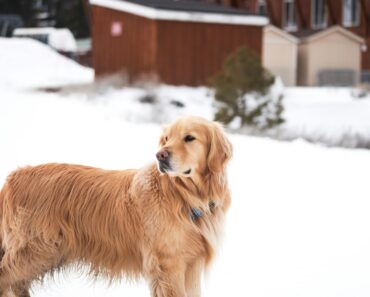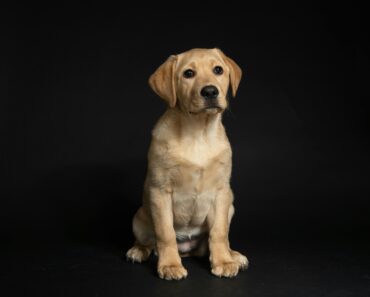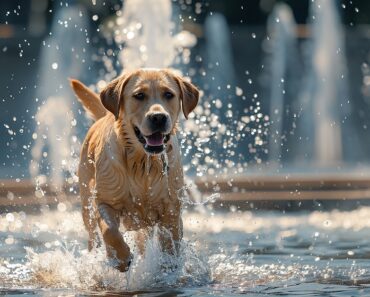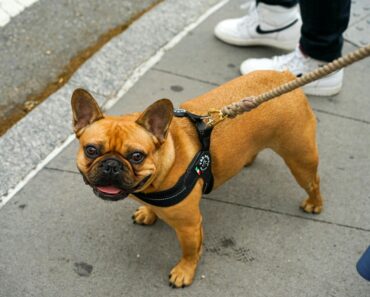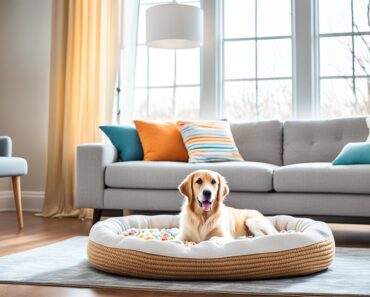The Poodle is a beloved breed that has won the hearts of dog lovers around the world. It’s known for its curly coat, elegant look, and high smarts. Families love the Poodle for being loyal, loving, and hypoallergenic. This guide explores the Poodle’s history, looks, and special traits that make it stand out.
Create an image of a stylish poodle with a sleek, curly coat standing confidently next to a person who appears to be allergy-free and happy, surrounded by floating particles indicating the absence of hair and dander.
Key Takeaways
- The Poodle is a highly intelligent and trainable breed, making it an excellent choice for obedience and agility competitions.
- Poodles are known for their hypoallergenic coats, shedding very little and producing minimal dander, making them a great option for those with pet allergies.
- Poodles come in three distinct sizes: Standard, Miniature, and Toy, each with its own unique characteristics and temperament.
- Regular grooming is essential for Poodles to maintain their distinctive curly coats and prevent matting or tangling.
- Poodles are highly energetic and require regular exercise and mental stimulation to thrive, making them a good fit for active households.
Introduction to the Poodle Breed
The Poodle is a dog breed that has won the hearts of many. It’s known for its elegant look, smart nature, and being hypoallergenic. It comes from Germany and has a long history. This history has made it one of the most popular hypoallergenic dog breeds and non-shedding dogs.
Origins and History
The Poodle is thought to come from the French Barbet. It was first bred as a water retriever. Its curly, purebred hypoallergenic coat helped it swim and fetch waterfowl. Over time, it became a beloved pet, known for its loyalty, trainability, and unique look.
Physical Characteristics
The Poodle stands out with its unique, tightly curled coat. It comes in colors like black, white, brown, and apricot. Its elegant build and graceful moves make it a favorite for shows and as a family pet.
- Curly, hypoallergenic coat that is low-shedding
- Variety of sizes, including standard, miniature, and toy Poodles
- Distinctive, proud carriage and regal appearance
“The Poodle is a breed that truly embodies the best of both worlds – a stunning appearance coupled with an intelligent and affectionate personality.”
Hypoallergenic Dog Breeds: The Poodle’s Advantage
Finding the right dog for allergy sufferers can be tough. But, the Poodle is a standout for its hypoallergenic traits. It sheds less and has fewer allergens than many dogs, making it great for those with allergies.
The Poodle’s coat is key to its hypoallergenic status. It has a single layer of tightly curled hair that sheds less than other breeds. This means it produces less dander, which can cause allergies in people.
| Breed | Shedding Level | Dander Production |
|---|---|---|
| Poodle | Low | Low |
| Labrador Retriever | High | High |
| Golden Retriever | High | High |
Poodles are not just hypoallergenic; they’re also smart and easy to train. They make great pets for those with allergies. Their low-shedding coats and friendly nature have made them popular among allergy sufferers.
If you want a dog that’s dander-free and low-shedding, or just a loving companion, consider a Poodle. Its hypoallergenic benefits make it a top choice for adding to your family.https://www.youtube.com/embed/Nt7N3tki4Xg
The Poodle’s Temperament and Personality
Poodles are known for their high intelligence and trainability. They are a top pick for those looking for mixed hypoallergenic breeds or purebred hypoallergenic dogs. These dogs love to please and need regular mental challenges.
Intelligence and Trainability
Poodles are among the smartest dog breeds. They can learn and remember commands easily. Their smart minds make them great at obedience, agility, and more.
With the right training, Poodles can do many tasks. They show how versatile and adaptable they are.
Affectionate and Loyal Companions
Despite their elegant look, Poodles are very loving and loyal. They love being around people and form strong bonds with their families. They are great with kids and make wonderful pets for anyone wanting a smart, loving, and hypoallergenic dog.
| Poodle Temperament Traits | Description |
|---|---|
| Intelligence | Ranked among the most intelligent dog breeds, with an exceptional ability to learn and retain commands. |
| Trainability | Highly responsive to positive reinforcement training, excelling in a variety of activities and tasks. |
| Affection | Deeply affectionate and loyal, forming strong bonds with their human families. |
| Companionship | Thrive on human interaction and enjoy being close to their owners, making them excellent family pets. |
Poodles are not just smart and trainable; they’re also very loving and loyal. They’re a favorite among those looking for mixed hypoallergenic breeds or purebred hypoallergenic dogs. Their ability to adapt and their loving nature make them a great addition to any home.
Grooming Requirements for Poodles
Poodles need regular grooming to keep their coat looking great. They have a low-shedding, dander-free coat that requires careful attention. This makes them a top choice for people with allergies.
Clipping and Trimming
Poodles’ coats never stop growing, so they need to see the groomer often. Getting regular clips and trims is key to stop mats and keep their look sharp. Owners must be ready for this ongoing care to keep their Poodle happy and neat.
How often you groom depends on the Poodle’s size and coat length you want. Standard Poodles need grooming every 4-6 weeks. Miniature and Toy Poodles should see the groomer every 3-4 weeks. Regular grooming keeps Poodles looking great and helps avoid skin problems.
| Poodle Variety | Grooming Frequency |
|---|---|
| Standard Poodle | Every 4-6 weeks |
| Miniature Poodle | Every 3-4 weeks |
| Toy Poodle | Every 3-4 weeks |
Poodles are great for those wanting a dog that sheds little and doesn’t trigger allergies. With proper grooming, Poodle owners can enjoy their smart and loving pets without the hassle of a lot of hair or allergens.
Create an image of a sleek, well-groomed poodle standing next to a brush and grooming tools. The background should feature silhouettes of other low-shedding dogs, such as Bichon Frises and Portuguese Water Dogs, frolicking in a park or backyard setting. The poodle should appear calm and content, with a soft, fluffy coat that showcases the breed’s low-shedding qualities. Light should highlight the sheen of the poodle’s coat, emphasizing its groomed appearance.
Poodle Varieties: Standard, Miniature, and Toy
The Poodle is a top choice for those needing hypoallergenic dogs. It comes in three sizes: Standard, Miniature, and Toy. Each size has its own benefits, fitting different needs and preferences, including allergy sufferers.
The Standard Poodle is the biggest, reaching 15 to 22 inches tall. It’s smart, easy to train, and has a hypoallergenic coat. This makes it great for families and those who are active. The Miniature Poodle is smaller, standing 10 to 15 inches tall. It’s perfect for those with less space or wanting a smaller, allergy-friendly dog. The Toy Poodle, under 10 inches tall, is ideal for those looking for a small, loving hypoallergenic dog.
All Poodle types are known for their low-shedding, hypoallergenic coats and high smarts. This means you can pick the right size Poodle for your lifestyle and living space. You won’t lose the breed’s allergy-friendly benefits.
| Poodle Variety | Height | Weight | Ideal Environment |
|---|---|---|---|
| Standard Poodle | 15-22 inches | 45-70 pounds | Families, active households |
| Miniature Poodle | 10-15 inches | 15-17 pounds | Smaller living spaces, apartments |
| Toy Poodle | Under 10 inches | 6-9 pounds | Lap dogs, smaller homes |
Knowing the special traits of each Poodle type helps owners choose the right hypoallergenic dog for their lifestyle and home.
Health and Care for Poodles
Poodles are known for their hypoallergenic coats. They need special care for their health and well-being. These smart and lively dogs, whether purebred hypoallergenic or mixed hypoallergenic breeds, have unique needs.
Common Health Concerns
Poodles can face certain health issues, like any breed. Some common concerns include:
- Hip and elbow dysplasia
- Addison’s disease
- Thyroid disorders
- Epilepsy
- Bloat
Regular vet visits and keeping an eye on their health can help manage these issues. This ensures your Poodle stays happy and healthy for a long time.
Exercise and Activity Needs
Poodles are smart and full of energy. They need lots of physical and mental stimulation. These purebred hypoallergenic and mixed hypoallergenic breeds should get daily exercise, like walks and playtime.
| Poodle Variety | Recommended Daily Exercise |
|---|---|
| Standard Poodle | 60-90 minutes |
| Miniature Poodle | 45-60 minutes |
| Toy Poodle | 30-45 minutes |
Meeting your Poodle’s exercise needs keeps them physically and mentally well. This makes them happy and healthy companions.
A poodle running through an open field, with its fur flowing in the wind, its tongue out and tail wagging in excitement. In the background, mountains and blue sky can be seen. The poodle looks vibrant and full of energy as it enjoys a good exercise.
Poodles and Allergies: Understanding the Benefits
For those who are allergic to pets, the Poodle breed is a great choice. They have low-shedding and dander-free coats. This makes them perfect for people who want a dog but have allergies.
Low-Shedding and Dander-Free Coats
Poodles are known for their curly coats that don’t shed much. They don’t have an undercoat that sheds a lot of fur and dander. These are the main causes of pet allergies. This makes Poodles a great choice for those with allergies.
Also, Poodles make less of the protein that causes allergies in people. So, people who are allergic to dog dander might not react to a Poodle. They might even not have any allergy symptoms at all.
- Minimal shedding due to their unique coat structure
- Reduced production of the allergy-triggering protein
- Ideal for allergy-prone individuals and households
“Poodles are one of the most allergy-friendly dog breeds due to their low-shedding and dander-free coats, making them a popular choice for those with pet allergies.”
Pet owners with allergies can now enjoy the company of smart and loving Poodles. The Poodle’s special coat and low dander make it a top pick among allergy-friendly dogs, dander-free dogs, and low-shedding dogs.
Conclusion
This guide has shown why the Poodle is a top choice for those with allergies. They are known for their beauty, smarts, and low-shedding fur. These traits make them perfect pets for people with allergies.
Poodles fit well in many homes, thanks to their adaptability. They are easy to train and love to please their owners. Their hypoallergenic nature means they’re great for those with allergies. You can choose from the regal Standard, the playful Miniature, or the cute Toy Poodle.
The Poodle’s mix of intelligence, love, and allergy-friendliness makes it a favorite among dog lovers. By learning about this breed, you can pick the right one for your family. You’ll get a smart, caring, and easy-to-maintain pet.
FAQ
What are the origins and history of the Poodle breed?
The Poodle has a rich history starting in the early 16th century in Germany. It was first bred as a water retriever. People loved it for its great swimming skills and smarts.
What are the physical characteristics of Poodles?
Poodles stand out with their curly, hypoallergenic coats. These come in colors like solid black, white, and apricot. They look sleek and elegant. There are three sizes: Standard, Miniature, and Toy.
Why are Poodles considered a hypoallergenic dog breed?
Poodles are great for people with allergies because they shed less and have low dander. This makes them a good choice for those allergic to dogs.
What is the Poodle’s temperament and personality?
Poodles are smart and easy to train. They are loyal and loving. They love being around people and make great family pets.
What are the grooming requirements for Poodles?
Poodles need regular grooming to keep their coats looking good. But, their coats are low-shedding and dander-free. This makes them easier to care for, even for those with allergies.
What are the different Poodle varieties, and how do they differ?
There are three main sizes of Poodles: Standard, Miniature, and Toy. Each size fits different homes and lifestyles. They all share the hypoallergenic and non-shedding traits.
What are some common health concerns for Poodles?
Poodles can have health issues like hip and elbow dysplasia, Addison’s disease, and epilepsy. Good breeders and vets can help keep them healthy.
How do Poodles’ low-shedding and dander-free coats benefit those with pet allergies?
Poodles’ curly, hypoallergenic coats are great for people with allergies. They shed less and have low dander. This reduces allergic reactions, making them a good choice for allergy-prone homes.

